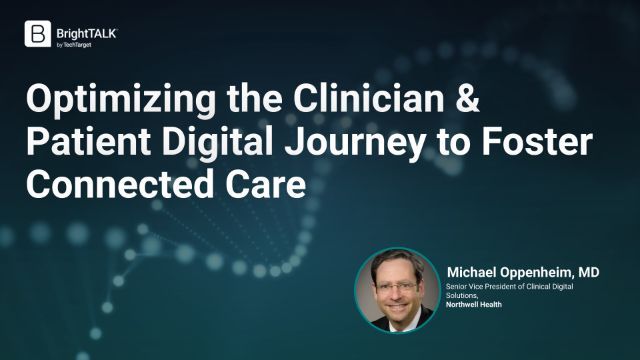Tech Burden on Clinicians: Northwell Health Explains Need for Balanced Patient-Provider Connection

Albany, NY - A recent keynote presentation by Michael Oppenheim, M.D., senior vice president of clinical digital solutions at Northwell Health, highlighted concerns about the growing burden of healthcare technology on physicians and their relationships with patients. As healthcare technology continues to advance and integrate into the U.S. healthcare system, organizations must ensure that these innovations do not drive a wedge between patients and their healthcare providers.
Oppenheim noted that current technologies, such as electronic health records and other digital tools, have created an administrative burden for clinicians. With the need to chart, analyze data, and communicate electronically, physicians are being pulled away from the core focus of their patient interactions. As Oppenheim aptly put it, "You're having your normal back-and-forth conversation, but you're not fully present... There's a huge distraction."
In response to these challenges, Northwell Health is implementing various strategies to optimize the clinician-patient digital journey and foster connected care. The organization uses technology-based capabilities, such as mapping tools and propensity analyses, to build physician profiles and facilitate patient connections with the right healthcare professionals.
Moreover, Northwell Health is exploring the benefits of generative AI in clinical care areas, including AI-powered chart summarization tools that help providers manage growing patient volumes. By reducing the time spent on data review, these tools allow physicians to focus on delivering high-quality patient care.
Ambient listening tools are also proving effective in reducing clinical administrative burdens. By recording and summarizing critical consultations into clinical notes, these tools enable physicians to spend more time with patients and complete tasks in their personal lives.
As Oppenheim emphasized during his presentation, "It's not about cutting back on technology; it's about making sure our clinicians have the tools they need to deliver high-quality care." By balancing technological advancements with patient-centered care, healthcare organizations can ensure a strong connection between patients and their providers, ultimately enhancing overall outcomes.
